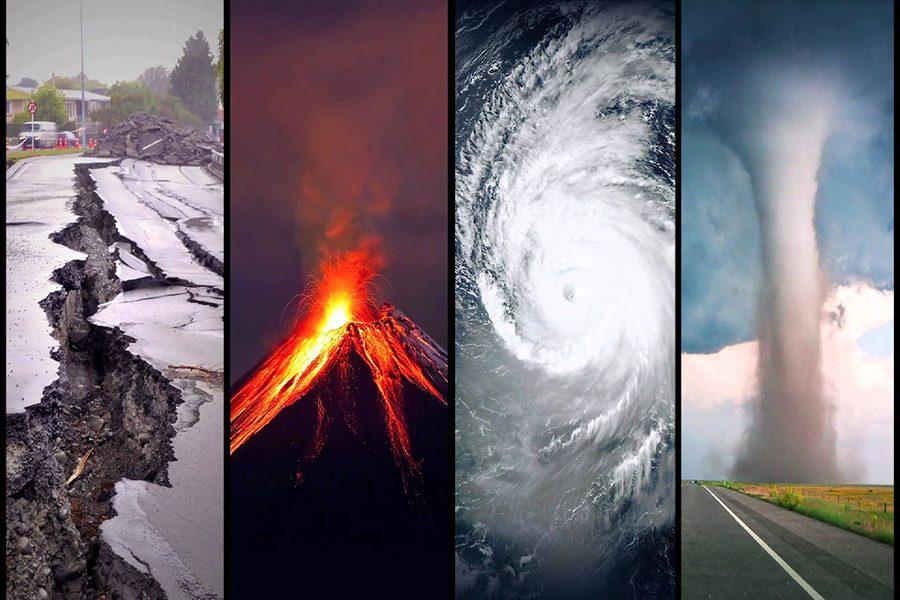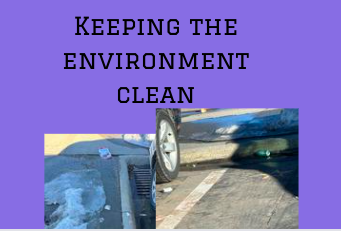Natural Disasters: Are we the problem?
Over the years, the news has been about global warming, politics, gun control, and legalization of drugs, but one thing many people have not paid attention to is the increase of natural disasters. In the 1970’s, the average number of disasters was only about 78 per year, while in 2004, that number had more than quadrupled, totaling 348 a year. That is 270 more disasters reported annually, in only 34 years. Ten years later, the number has increased by 181 more disasters. Is this the natural course of evolution or is this the cause of mankind?
Natural disasters can range from a simple tornado in the middle of the sandhills to a tsunami destroying and flooding the coasts of countries. But what causes these natural disasters? No, I’m not talking about the schools’ scientific explanation of the tectonic plates moving underneath the earth’s surface, or hot air meeting cold air, causing a tornado. I am talking about our, the human race’s, influence on the increase of occurrence over the years. Is it just a coincidence that these disasters are increasing as the population does and the need for resources increase or are we truly changing the environment with such a high necessity of resources that cannot be replenished at the same rate?
There are scientific theories that explain how humans are the cause for this dramatic increase of destructive events. Some of the many theories explain how global warming could decrease the temperature difference between the North and South Pole, which will eventually lead storms to ultimately come to a stop. With no difference in climate to allow the proper collision of weather patterns, storms will practically not exist. Though there is a great chance of the increasing climate to decrease the number of storms, there is also a possibility of the increase of storms as well. The rising temperatures from north to south will allow the atmosphere to evaporate and absorb more water vapor. Once enough vapor is built up, it could release all at once creating a storm so intense it could flood the ground within, possibly, seconds. This amount of rain and high temperatures mixed together will lead to the expansion of hurricane or tsunami range location of occurrence. Though the range expansion is not our only issue with the increase in storms, there is also a very high chance of more violent storms happening more often.
The simplest of changes can cause a natural disaster, such as injecting fluids underground. This increases the fluid pressure in fault zones, ruining the stability causing these zones to fault. Earthquakes can lead to mudslides, or landslides, which can easily destroy things with no hesitation. This extra pressure, if added in the right spot, can cause the eruption of a volcano.
These are only a few theories. There are thousands more, available to anyone with a single Google search. If these theories are correct, should we attempt to prevent these events or allow life to take its course?
If it is decided to prevent the disasters, that many now and many before us have tried to predict, can we stop the increase of natural disasters or is it too late? To be able to decrease the natural disasters, we must first decrease global warming, stop the usage of all fossil fuels, and stop the process of deforestation so the extra carbon dioxide can be absorbed. Once the extra carbon dioxide is transformed into oxygen through photosynthesis, this will allow the heat from the atmosphere to escape, lowering the temperature across the world. We need to research and try to discover new ways of doing things, like injecting fluid into the ground. Can we reverse our mistakes and change the world back to its normal state?
After seeing the news on the recent earthquake in Ecuador on Saturday the 16th, this topic came to mind. I want to know what I can do to help prevent these issues; I want the world to be able to survive for a million more years if not longer. If we, as one race, work together, we can fix our diseased world step by step, but we must start by ending the use of all precarious resources.

Hey! My name is Sharia Williamson. I am a seventeen year old student here at Alliance High School, and the senior editor, for the SPUD.
After I graduate...







